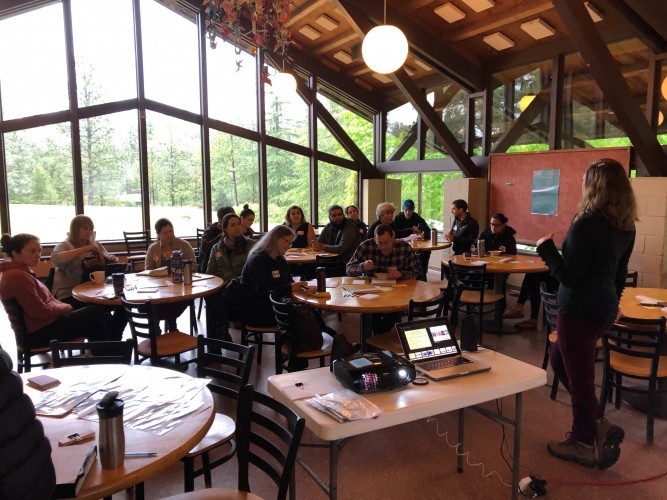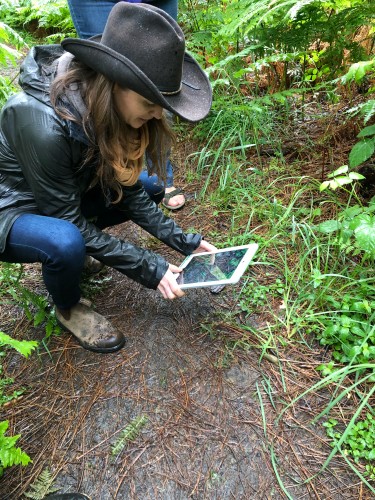Reflecting on our Woolman Center workshop
Named after a mythical land from a novela when the Spanish first arrived, California was said to be paradise on Earth. However, times have changed since the Spanish first laid their eyes on the place we now call home. Social activists have spoken openly about the disasters of environmental change and many, from the top of California’s government to grassroots organizations are beginning to create much more systematic and widespread awareness and change with initiatives. The California Department of Education’s Blueprint for Environmental Literacy is one such initiative that puts forward the ambitious goal of educating all students about the environment. The initiative’s focus on not just basic environmental knowledge but also how to to make rational decisions to help preserve our ecosystem.
The Center for Community and Citizen Science sees our work with educators and youth as an important piece of this larger puzzle. In May 2018, UC Davis graduate student, Erin Bird and Dixon school district teacher, Peggy Harte led a workshop for a diverse array of classroom and informal-education educators at the Woolman Center in Nevada City. This workshop was a collaboration between the CCS Center, the Yolo County Office of Education in association with California Regional Environmental Education Community (C.R.E.E.C) Network, and The Woolman Center with the goal of training educators on how to improve environmental literacy through Youth-focused Community and Citizen Science.
Citizen and community science is a broad term for projects in which individuals who may or may not have any training as scientists can work together along with scientists to answer real-world questions and gather data. This workshop in particular was centered around Youth-focused Citizen and Community Science (YCCS). YCCS provides deep learning opportunities, and also the chance for youth to have authentic, hands-on science experiences such as with collecting and analysing data (for more on this, read our research brief about youth learning through YCCS).
The workshop was attended by teachers spending half a day at the Woolman campus, which is comprised of 230 acres of wood and grasslands, in order to learn about practices that deepen learning through YCCS. For instance, participants learned about instructional moves educators can make to position youth as people who do science, such as by attending to their questions and providing them with tools, skills and expertise to conduct accurate observations. Participants, also engaged in hands-on activities that are easily transferable to various educational contexts and for different CCS projects. Participants engaged in various scientific sketching activities and species identification activities. The goal of the workshop was to support teachers interested in learning how YCCS can benefit students and meet their own learning goals. We are always excited to engage with educators and think about how YCCS can open up new opportunities, and help them accomplish their goals. In addition, these workshops provide important feedback on our research, raise new questions, and help point the way toward future collaborations.










